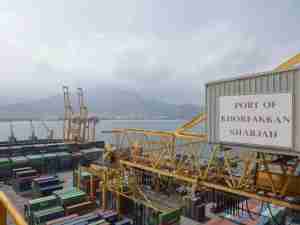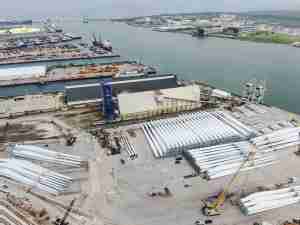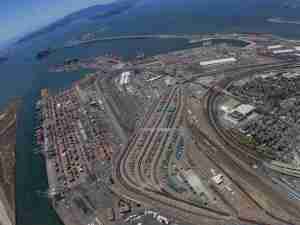ICTSI, which signed a 10-year agreement in 2007 with Syria to operate and manage the container terminal at Tartous, said it had withdrawn all of its Filipino employees from the country.
Western sanctions imposed on President Bashar al-Assad, a worsening currency crisis and a growing exodus of foreign companies, as well as the violence in which the UN says more than 60,000 have died, have taken their toll on Syria's economy.
"The Syrian civil war is escalating, exposing everyone, both combatants and civilians, to increasing threats of death and destruction every day," ICTSI said in a statement.
"ICTSI ... has announced the pull-out of its business in the Syrian Arab Republic due to the civil war ... and the resulting untenable, hostile and dangerous business environment."
Port officials were not immediately available for comment.
A Europe-based ship industry source said it was unclear what effect the move would have on contracts with customers.
"From a technical point of view, I can't see any reason why the Syrians won't be able to maintain port operations, albeit with teething troubles," the source said. "The question is how will contracts with customers look - will they be maintained ... or will they be null and void."
An ICTSI official, asked about its exit, told Reuters on Thursday: "The terminal is already being run by Syrians ... There is a transition period to turn it over properly. It's not more than one month."
Tartous is also home to other commercial port facilities which have berths for dry bulk and general cargo vessels, all vital for bringing in consumer goods, foodstuffs and commodities.
Slowing Trade
ICTSI said the crisis in Syria had negatively impacted forecasts for container volume growth. "The drop has set the Syrian container market back five to six years at 2006-2007 levels."
Another ICTSI official said the port of Tartous had handled 32,500 TEUs (20-foot equivalent container units) in 2012, down from 54,150 in 2011.
London's marine insurance market last year added Syria to a list of areas deemed high risk for merchant vessels and trade sources have said overall shipping costs have risen in recent months.
Syria's larger container and cargo port of Latakia has also been hit by fighting in the 21-month-old conflict.
Ship-tracking data from maritime intelligence publisher IHS Fairplay showed the number of dry bulk and general cargo vessels making calls at Tartous and Latakia ports had dropped to 639 last year, from 828 in 2011 and 1,140 in 2010.
French container firm CMA CGM, the world's third- biggest group and part of a consortium that manages the Latakia terminal, said it was continuing to operate normally at both Latakia and Tartous.
Maersk Line, the world's biggest container shipping company, has said earlier this year it had stopped calls to Tartous. "While Maersk Line does not itself have own vessels calling Latakia, Maersk Line is still accepting cargo in and out of Syria via Latakia on a so-called foreign feeder service," a spokesman said.
Smaller line Hamburg Sud said it was still calling at Latakia but had dropped services to Tartous earlier this year.
Overall container volumes at Latakia reached 524,614 TEUs for the whole of 2011, down from 586,283 in 2010 and 621,377 in 2009, previously released port data showed.
"We do not envisage that the situation at Syrian ports will improve in the short term," said Daniel Richards of Business Monitor International. (Reuters)










